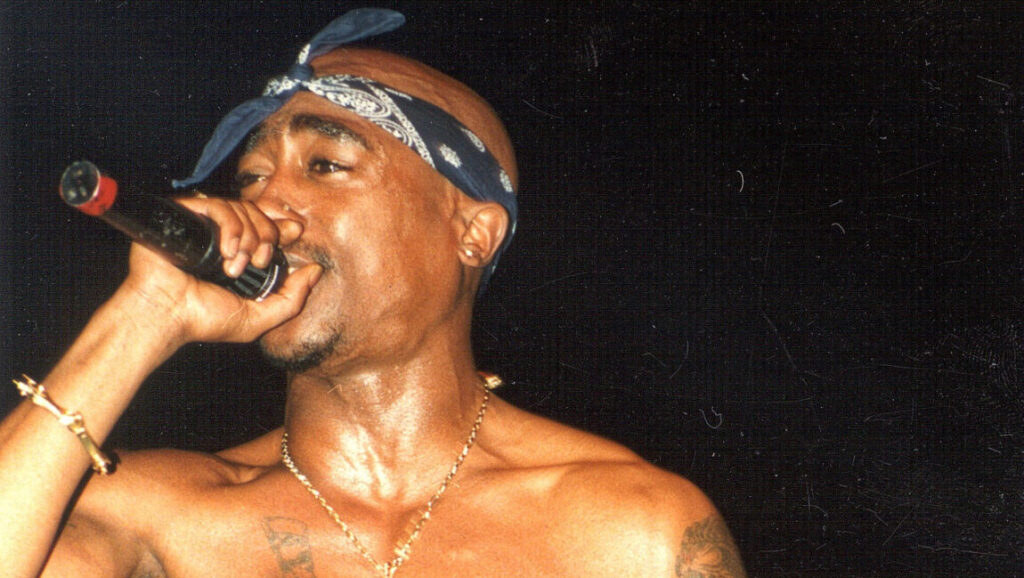Had he not been murdered more than two decades ago, Tupac Shakur would have turned 48 this month; he would be in the third decade of his career, and probably still releasing an album every two years or so. He would also, very possibly, be ‘canceled’ from hip-hop culture, or from the culture in general, for a rape conviction stemming from an altercation back in 1993. True, these hypotheticals are largely irrelevant: 2Pac is dead, and his legacy as one of the greatest rappers to ever live has mostly gone unchallenged. In fact, ‘Pac’s legacy stretches beyond just hip-hop, with words like “poet” and “revolutionary” often ascribed to the rapper in a bid that lends him artistic legitimacy as more than that. You could say, even, that classifying 2Pac as ‘just a rapper’ would be condescending, what with him being one of the few hip-hop acts to ever be inducted into the Rock and Roll Hall of Fame. But consider this: much of the posthumous commendation that 2Pac’s received comes less from the general public’s inclination to praise — sorry — a relatively substandard lyricist, and instead is the result of the way the artist has characterized himself as a misunderstood victim. Me Against the World was recorded before ‘Pac was shot five times outside of Quad Recording Studios, and before his prison sentence related to his sexual assault case. The album presents 2Pac as a man with myriad conflicting personas, each one needed to create the mythos that surrounded the MC up until his death: the gangster, but with his heart on his sleeve; the most hated man in the world — who can also go platinum; and maybe most importantly, the outlaw who just can’t seem to escape the violence that constantly surrounds him. To put it succinctly, 2Pac doesn’t just want to have his cake and eat it too; he wants you to feel bad for him when the last slice is gone.
This is the dichotomy that defines most of Me Against the World: you’re either with 2Pac, or you’re just one of the many who don’t understand him, who simply don’t want him to succeed because you want him locked up, or you want the police to get him, or any number of other threats that ‘Pac illustrates.
This isn’t to say that the myth-making on display in Me Against the World is without legitimate weight: there’s a strong thematic presence of death that lurks on nearly every track, the insistence that, at seemingly any moment, our hero’s life could be taken. The vulnerability 2Pac’s willing to display on tracks like “Temptations,” revealing that “Even thugs get lonely,” or the manic despair he confesses on “So Many Tears,” isn’t anything to scoff at either. However, this bid for empathy is also considerably diminished by ‘Pac’s penchant for a queasy kind of braggadocio — like that found on the G-funk swagger of “Heavy in the Game,” or the whiny, victim-blaming venom that fuels “Fuck the World.” The latter song laments being labeled as a rapist, contending that this reputation comes from racism, from a world that wants to see him fail — and from “tramp-ass bitches.” (He goes as far as to even argue, rather sensationally, that “They should’ve killed me as a baby,” on “Lord Knows.”) This is the dichotomy that defines most of Me Against the World: you’re either with 2Pac, or you’re just one of the many who don’t understand him, who simply don’t want him to succeed because you want him locked up, or you want the police to get him, or any number of other threats that ‘Pac illustrates. And while the artist himself might explain this as a way of giving ‘his side of the story,’ one could also see his storytelling as a means to half-assed excuses for objectively terrible behavior from a sociopath with a martyr complex. Even when honoring his own mother, on “Dear Mama,” 2Pac uses the occasion to wallow in self-pity and self-aggrandizement, claiming, “I ain’t guilty, ‘cause even though I sell rocks / It feels good puttin’ money in your mailbox.” It’s this track, also, that has proved integral to the lasting attention and popularity that 2Pac’s enjoyed. American critic Armond White — writing on Shakur’s life, years after his death — mentioned that the success of “Dear Mama” is unsurprising, considering “It displays the heart and sensitivity behind a music mostly known for insolence.” On the surface, much like 2Pac’s presented narrative, the song does appear heartfelt in its intentions; but it, too, can also be seen as a calculated act of emotional manipulation.
Part of Kicking the Canon – The Album Canon.


Comments are closed.